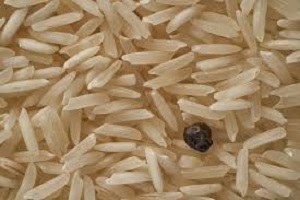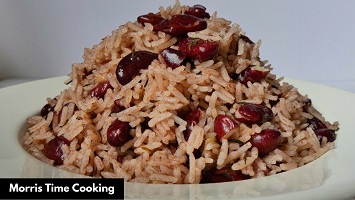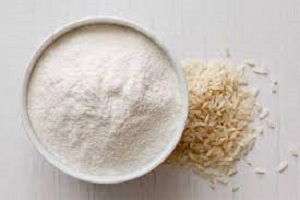Basmati Rice for Health – Is Basmati Rice Healthy? Benefits
Basmati Rice for Health – Is Basmati Rice Healthy? Benefits. Please Watch and Find Out >>>>

The basmati rice may not appear to be all that different from other types of rice at first glance. However, one whiff of the grain will reveal a significant difference.
When basmati rice is cooked, it has a characteristic aroma that many people compare to popcorn. In fact, the Hindi term “basmati” implies “fragrant” or “full of aroma.” It’s known as the “queen of fragrant rice” in some locations.
Basmati rice is indigenous to India and Pakistan, with India accounting for two-thirds of global production.
While its real origins are unknown, archaeologists have uncovered a form of long-grain rice near Udaipur, India, that dates from between 2000 and 1600 BC and is thought to be a progenitor of today’s basmati rice.
Basmati rice has been grown in the Himalayan foothills for thousands of years. It’s now a common ingredient in many Indian recipes and is popular all over the world.
Table of Contents
Nutritional Quotient of Basmati Rice
1 cup of basmati rice contains:
- 210 Calories
- 0.5 Fat
- 46 gm Carbs
- 0.7 gm Fibre
- 5 gm Protein
- 0 gm Sugar
- Other nutrients present in the rice are
- Vitamin B1 & B6
- Copper
- Folate
- Magnesium
- Phosphorous
- Zinc
- Iron
Basmati rice contains 20% more fiber than other types of rice. It’s easy to digest and low on the Glycemic index.
Basmati rice brands in Nigeria
- Tropical Sun Golden Sella Pure Basmati Rice 5kg (Pack of 2)
- Laila Brown Basmati Rice 5kg
- Maharani Indian Basmati Rice Suitable For Diabetics
- Aani Golden Sella Basmati Rice 5kg
Basmati Rice for Health
Basmati rice is available in two colors: white and brown. Both have a distinct nutty flavor and aroma. White basmati, on the other hand, has been treated more.
The hull, bran, and germ have all been removed from the product. Only the hull is removed from brown basmati. Both sorts are tasty and nutritious supplements to your diet.
Basmati rice is used for its nutritional value in addition to its exquisite flavor and taste. Basmati rice is high in nutrients, making it a nutritious complement to your normal diet.
It contains fewer calories than conventional rice and is high in minerals such as magnesium, zinc, niacin, phosphorus, copper, fiber, and others.
Basmati Rice’s Nutritional Value – Basmati Rice for Health
Although the exact contents vary depending on the variety of basmati, each serving contains a lot of carbohydrates and calories, as well as micronutrients like folate, thiamine, niacin, vitamin B6, and selenium. Proteins, fiber, sodium, copper, and magnesium are also present.
Brown basmati rice has slightly more calories, carbohydrates, and fiber than white basmati rice.
Basmati Rice’s Health Benefits – Basmati Rice for Health
Basmati rice has a plethora of health benefits, not only because it is high in vital nutrients, but also because it is low in potentially dangerous compounds.
- It Helps with Digestion
Basmati rice has a good level of soluble fiber, which helps with digestion and prevents constipation and irritable bowel syndrome (IBS). It would be easier to digest food without feeling bloated if you included soluble fiber in your daily diet.
- It Is Beneficial For Diabetics
While rice is not recommended for persons with diabetes, basmati rice has a lower glycemic index (between 50 and 58).
It also has less arsenic, making it healthful and safe for diabetics to consume as long as they eat smaller servings.
- It has a low arsenic content.
Arsenic is a type of heavy element found in rice that can cause major health problems. Diabetes, for example, could be a result. Cancer, as well as heart problems, are all possibilities. When compared to other forms of rice, basmati rice contains less arsenic. This makes eating healthier, especially for patients who have heart disease or diabetes.
- It Promotes Cardiovascular Health
Brown basmati rice, in addition to being low in arsenic, is a good example of a whole grain that is good for the heart. It would help lessen the risk of developing high blood pressure by lowering cholesterol levels due to its unsaturated fat content and lack of saturated fats. All of these things will assist your heart stay safe and healthy.
- It Helps You Lose Weight
Those who are trying to lose weight might use basmati rice instead of normal rice to attain the greatest results. This is due to its high fiber content, which keeps you fuller for longer while also speeding up digestion.
It contains amylose, a type of carbohydrate that is difficult to break down, in addition to fiber. So a modest quantity of basmati rice can keep you going for hours. Nigerian brown rice is another full-grain that can help you lose weight (ofada rice).
- It helps to keep blood pressure in check.
Magnesium and potassium are found in basmati rice, which helps control blood pressure and lowers the risk of hypertension and other disorders related to high or irregular blood pressure.
Note:
Brown basmati rice is considerably healthier than white basmati rice because it is whole grain and unprocessed. Some nutrients would have been eliminated from the white one, which had been treated.
So, if you want to reap all of the health benefits of basmati rice, you should consume more of the brown variety.
People also ask about Basmati Rice for Health:
- Is it okay if I eat basmati rice every day?
While white basmati rice can be consumed in moderation, brown basmati rice may be a healthier alternative overall.
White basmati rice, for example, has been linked to an increased risk of type 2 diabetes, obesity, and metabolic syndrome. As a result, they’re best consumed in moderation.
- Is basmati rice good for losing weight?
Your weight-loss efforts will be aided by basmati rice.
The good news is that a serving of Basmati rice contains fewer calories than its coarser counterparts.
With just one serving, you can cut your calorie consumption by 20 calories. You can already save 60 calories per week by eating three pieces of Basmati rice per week.
- Is Basmati rice better for you than white rice?
Fiber: Basmati rice has a lower glycemic index, making it the healthier option of the two. It also includes more fiber.
- What makes basmati rice unique?
The Basmati grain is remarkable in that when cooked, it swells to more than twice its dry length.
The grains only expand lengthwise, unlike other forms of rice, allowing them to keep their characteristic length and slenderness when cooked.
- Is it true that basmati rice causes belly fat?
Basmati rice, in its whole-grain form, can be incorporated into any healthy diet. Basmati rice is said to contain fewer calories than conventional long-grain rice.
It has a lower glycemic index (GI), which makes it a better choice for losing belly fat or maintaining a healthy weight.
- Is basmati rice preferable to bread?
Rice contains more vitamins and minerals than bread, but bread is lower in calories and carbohydrates, so it depends on your dietary goals.
For the finest health outcomes, choose the whole-grain variety of anything you choose.
- Is it true that eating basmati rice causes gas?
Basmati rice is the most sattvic and aromatic of all the rice. White rice is recommended by Ayurveda for anyone suffering from gas, bloating, or indigestion.
For Vata people, rice cooked ‘al dente’ (without enough water) might produce gas, bloating, and constipation.
If rice causes you to have gas, add more water to the pot and cook the rice until it is mushy and fluffy.
- Is basmati rice OK for Keto?
A standard portion of rice is half a cup, and since you need to remain under 20 grams of net carbs to stay in ketosis, white rice won’t make it.
Other white rice varieties, such as Basmati and low glycemic index (GI) rice, will not work.
- Is basmati rice cholesterol-rich?
Furthermore, basmati rice includes each of the eight necessary amino acids. It also contains a lot of folic acid, which is an important nutrient.
- Is Basmati rice beneficial to diabetics?
Basmati rice, according to researchers, maybe a good choice for diabetics. White rice is commonly thought to be a bad choice for diabetes.
This is due to the fact that rice has a high glycemic index (GI). The GI is a measurement of how rapidly blood sugar levels rise after eating a specific dish.
Basmati rice has a lower Glycemic index than other kinds of rice. Basmati rice has a GI of between 50 and 58. The GI index of brown basmati rice is even lower. As a result, basmati rice is a relatively nutritious carbohydrate option.
Basmati rice includes a substantial quantity of fiber in addition to having a low GI. A high-fiber diet can assist to minimize the risk of type 2 diabetes. If
Basmati vs. other types of rice
In terms of nutrition, basmati rice is comparable to other forms of brown or white rice.
Although there are minor differences in calorie, carb, protein, and fiber counts across different types of rice, they aren’t significant enough to make a difference.
However, basmati rice usually has less arsenic, making it an excellent choice if rice is a staple in your diet.
It’s also longer and slimmer than short-grain variants such as long-grain rice.
Many Asian and Indian recipes benefit from its nutty, floral scent and soft, fluffy texture. Rice puddings, pilafs, and side dishes benefit from it in particular.
Summary
Basmati rice is similar to other forms of rice in terms of nutrients, however, it has less arsenic. Its distinct flavor, aroma, and texture make it an excellent fit for Asian cuisine.

